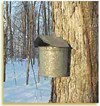Posted 9/3/2010
by Karen Kosinski

Reserve Your Spot Now!
Need some guidance on the development or expansion of a farm enterprise? Can’t find any trainings near you? If you’re comfortable enough with a computer to consider learning online, you’ll be glad to know that the Cornell Small Farms Program and Cornell Cooperative Extension are expanding offerings of their popular online courses for beginning farmers with two new online courses this Fall. Join experienced CCE and farmer instructors and 25 of your farmer peers in a dynamic learning experience that incorporates both self-paced readings and real-time virtual meetings with discussion forums, homework activities, guest presenters, and developing a customized plan for your next steps in farming.
The Cornell Small Farms Program and Cornell Cooperative Extension will present:
BF 110: Soil Health Basics: Investing in the Vitality of Your Farm
BF 104: Financial Record-keeping: A Cornerstone of Farm Profitability
BF 101: Taking Stock: Evaluating Your Land and Resources and Choosing an Enterprise
COURSE DATES: Thurs. Oct 14, 2010 to Wed. Nov 24, 2010. All courses incorporate live webinars featuring farmers, agency staff, and University faculty. See link below for webinar dates and details.
COST is $150 per course, except the Soil Health course, which is $165
TO REGISTER, or for more information on course format and requirements, please visit http://www.nybeginningfarmers.org/index.php?page=onlinecourse
Posted 9/2/2010
by Karen Kosinski

"Maple Production for Beginners" is the title of today's webinar at 7:00 p.m. presented by Stephen Childs, Maple Extension Specialist at Cornell University. slc18@cornell.edu
Check out the Cornell Sugar Maple Research & Extension Program website at www.cornellmaple.com
Photo Credit: www.ascu.buffalo.edu
Posted 8/24/2010
by Missy Potter

A pasture walk is scheduled for Thursday, September 2nd, 11:00 a.m. at the Orinshire Sheep Dairy, 511 Frog City Road, Fort Plain, NY. Host Terri Mackenzie and Scott Burrington will share their experiences of raising dairy sheep, the farm's production and sale of the sheep's milk. Attendees should bring their own lunch.
For more information or questions about the pasture walk, email msp234@cornell.edu.
Posted 8/17/2010
by CCE News
August 20th, 11am-2:30pm
Sorbello & Sons Packing House, Fulton, New York
This meeting will provide attendees with the latest information on insects, diseases, and cultural practices, such as IPM, that can be utilized to help reduce pesticide use and improve yields in soybean fields and storage facilities. Topics to be discussed:
NYS DEC recertification credits available.To receive credits, be sure to bring your pesticide identification card with you.
The cost of the program is $15 and includes lunch. Registration is required by August 18. Contact CCE-Oswego County at 315-963-7286 x 201 or email kmm14@cornell.edu.
Posted 8/12/2010
by Cornell's Horticulture Department

What varieties will grow best in my garden? No doubt gardeners have been asking their fellow gardeners this question for centuries.
Today's gardeners ask the same question. But now a website provides an avenue for gardeners to share their knowledge with a much wider community.
The concept is simple: Gardeners visit http://vegvariety.cce.cornell.edu/ and report what varieties perform well - and not so well - in their gardens. Other gardeners visit to view the variety ratings and read the reviews to decide which might work well for them.
The Vegetable Varieties for Gardeners citizen science project also provides an opportunity for researchers to involve knowledgeable and motivated citizens in meaningful scientific research. Research on the performance of vegetable varieties is often limited to commercial production for many reasons. Home gardens may be overlooked, in part, because visiting thousands of home gardens to collect data would be an overwhelming task.
Asking gardeners to partner with researchers by collecting and sharing their own observations via the web could prove to be a winning combination for all. With a multitude of gardener observations at their finger tips, researchers can gain new insight into the performance of vegetable varieties under a wide range of conditions and practices, and ultimately provide more insight into which varieties perform best. At the same time, gardeners can get advice from a larger community of gardeners to help decide which varieties to try in their own garden.
Gardeners - young, old, beginners, experts - join the research team today!
Another citizen science opportunity sponsored by the Department of Horticulture at Cornell is the Viburnum Leaf Beetle Project, where citizen scientists partner with Cornell researchers to track the spread of this devastating pest of native and cultivated shrubs.
The Vegetable Variety Citizen Science Team:
- Lori Bushway, Citizen Science Project Director/Senior Extension Associate, Department of Horticulture. Website questions? Citizen science questions? Email: bushway@cornell.edu
- Craig Cramer, Communications Specialist, Department of Horticulture
- Russell Welser, Educator, Cornell Cooperative Extension, Ontario County
- Marcia Eames-Sheavly, Senior Extension Associate, Department of Horticulture
- Charlie Mazza, Senior Extension Associate, Department of Horticulture
- Paul Treadwell, Web Administrator, Cornell Cooperative Extension
- Jen Farrell, Web Programmer, Cornell Cooperative Extension
Posted 8/9/2010
by Karen Kosinski

Chuck Bornt, Extension Specialist with the Capital District Vegetable & Small Fruit Team, reported last week that while investigating late blight symptoms, he encountered another disease that can resemble it. Zonate Leaf Spot (Cristulariella moricola) is occurring sporatically in the region.
"...the key difference is Zonate Leaf Spot tends to be very "wet" in appearance comparied to late blight and it does not sporulate quite like it either. It has a very prnounced "bull's eye" pattern and the centers tend to drop out It can appear on young and old tissue." writes Bornt.
Bornt says the one thing he looks for is what plants are growing in the hedgerows around the fields. The disease has lots of hosts, but the most popular tend to be Box Elder and Black Walnut. It is believed that these infected trees are probably the source of inoculum for infection of the tomatoes.
Although the infection can be severe, Bornt says there are no specifc recommendations for the disease but he suspects that protectants like copper and Bravo should provide some incidental control.
Posted 8/4/2010
by CDVSF Team

Wednesday, August 4th, Bowman Orchards, 6:30-8:30 p.m.
Visit with Dr. Tom Zitter about diseases that are affecting crops right now, indculding powdery and downy mildews, late blight, and more. Bring your samples in sealed plastic bags for discussion. DEC credits are available.
Dr. Zitter is with Cornell University's Plant Pathology and Plant-Microbe Biology Department.
For more information call Chuck Bornt at 518-859-6213.
Posted 8/2/2010
by Tim Shepherd, Cornell University Pro-Dairy
Join us prior to Empire Farm Days for a tour of manure management systems and technologies on three Western New York dairies. Drive yourself and pick the manure management systems and farms that interested you the most! Tours are free. Please RSVP asap to dmconf@cornell.edu.
Seminars at the farms are coordinated by DairyBusiness Communications, Northeast Dairy Producers Association, and PRO-DAIRY, and will be moderated by manure management specialist, Tim Shepherd.
Posted 7/29/2010
by Rebecca Hargrave

Late Blight was confirmed on both tomatoes and potatoes on July 27, 2010. Grown in a home garden in the city, the sample was collected on July 25 after the entire crop of tomatoes died almost overnight. Nearby potatoes are also infected.
In an effort to avoid the catastrophe that happened last year, gardeners are asked to please monitor tomatoes and potatoes in earnest. Look for dark watery lesions on the leaves, stems and fruit. Late blight spreads quickly. Cornell recommends “If late blight becomes severe, remove diseased plants by digging them up. Destroy these plants immediately by one of the following: burying them deeply in an area away from the garden, burning them, or by bagging them in a plastic bag and discarding the bag. These steps will help avoid production of a larger number of spores. Harvest all potato tubers in the garden. If late blight occurs when the tubers have already 'sized up', harvest the crop as soon as possible to avoid post-harvest tuber rot. Again, destroy diseased foliage and stems.”
There are fungicides that can be sprayed to prevent infection, but once severe infection has taken hold, chemical controls will not work. Commercial growers should check http://www.nysaes.cornell.edu/recommends/ for the latest pesticide recommendations.
Posted 7/27/2010
by Rebecca Hargrave

Cornell Cooperative Extension of Chenango, Fulton-Montgomery, Herkimer, Otsego, and Schoharie Counties are recruiting new Master Gardener Volunteers to work with home and community gardeners. Master Gardeners bring research based information and gardening volunteer assistance to adults, youth, and communities.
New Volunteers are required to attend the Master Gardener Training, which will be held on Tuesdays September 14 through November 22 in Cooperstown. The cost of the training is $150, $50 of which will be returned to the volunteer after completing 100 hours of volunteer service to Cooperative Extension over a two year period.
The intensive training is taught by Cornell Cooperative Extension and Cornell University staff and horticultural professionals and is equivalent to a college level course in horticulture. Topics include: Basic Plant Pathology, Soils and Fertilizers, Garden Botany, Annuals & Perennials, Basic Entomology, Organic Gardening & Composting, Vegetable Gardening, Fruits, Trees & Shrubs, Pruning, Ecological Lawn Care, Nuisance Wildlife, Herbs and more. Potential master gardeners do not need to be garden experts to apply - just possess a passion for gardening and a passion for helping others.









